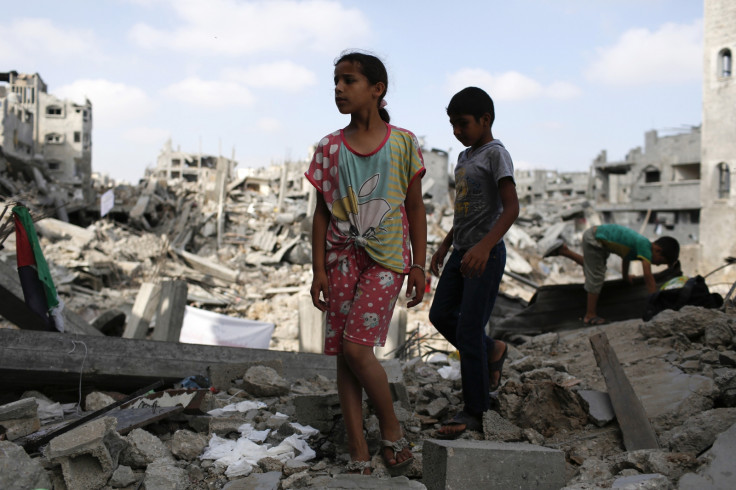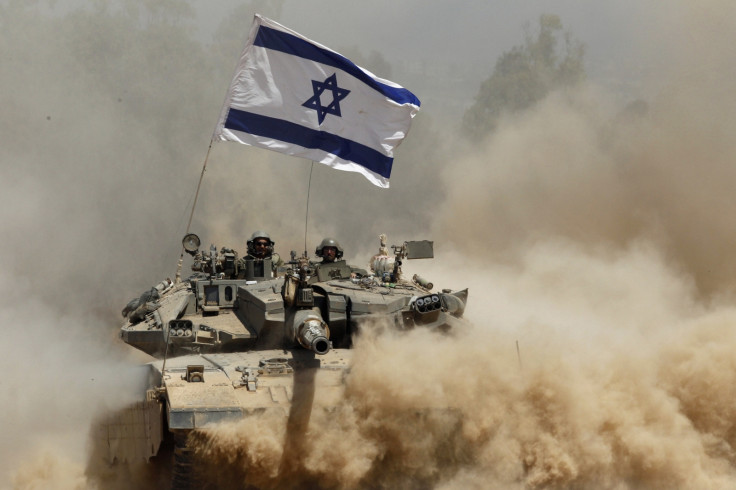Gaza Strip: UK Public Opinion Turns Against Israel as 52% Say Military Actions 'Disproportionate'

Just over half of UK voters believe Israel's recent military actions in Gaza - in which 1,900 Palestinians and 67 Israelis have died - were "disproportionate", according to the latest ICM poll commissioned by The Guardian.
The poll appears to bear out the feelings of Baroness Warsi, who in her resignation letter said the government's stance on the conflict was "morally indefensible, is not in Britain's national interest and will have a long term detrimental impact on our reputation internationally and domestically."
ICM poll, 52% of British voters think Israel acted disproportionately over Gaza. Fine. 48% don't, and that's pretty grim.
— Latte Labour ن (@LatteLabour) August 12, 201441% of those questioned by ICM said their opinion of Israel has worsened since the start of Operation Protective Edge a month ago, and just 2% now had a better opinion of the country. 48% have the same opinion of Israel and 8% don't know.

A fifth of voters (21%) said their opinion of Palestinians had worsened, and only 9% said their opinion of Palestinians has improved despite the daily scenes of carnage from the Gaza Strip. 60% said their opinion of Palestinians has not changed and 9% don't know. The poll did not distinguish between Gaza and the West Bank, or Hamas and Fatah.
However the results of the poll could also indicate that a large proportion of the UK public either have no opinion, or simply don't think they know enough about the subject to take sides. Despite graphic footage of the aftermath of IDF strikes, including destroying hospitals and UN schools, almost a fifth - 19% - said Israel had acted proportionately and 29% did not know if Israel's actions had been proportionate or not. 52% said Israel's response had been disproportionate.
As a shaky ceasefire continues, there is growing disagreement over the accuracy of casualty figures. The UN High Commissioner for Human Rights (OHCHR) says that up till 10th August 1,948 Palestinians had been killed, of whom 1,402 were civilians, including 456 children and 237 women, but other experts believe a larger proportion may have been combatants.
© Copyright IBTimes 2024. All rights reserved.






